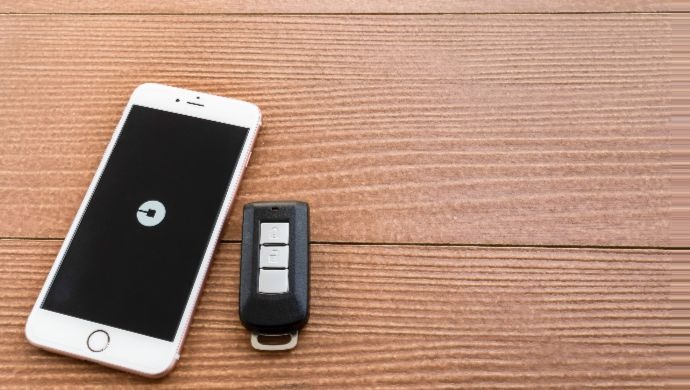Also, Averspace inks deal with Frasers Property and Narendra Modi finds himself in hot water over official app

Grab buys Uber in Southeast Asia — [e27]
Grab has officially announced that Uber will receive a 27.5 per cent stake in Grab; Uber CEO Dara Khosrowshahi will join Grab’s board.
It also said that Grab’s food delivery service GrabFood will expand to Singapore and Malaysia, then the rest of Southeast Asia, by the first half of 2018. Uber’s service will operate in Southeast Asia for two more weeks.
The deal marks a significant victory for Grab in Southeast Asia and points to Uber’s desire to shore up its finances ahead of an IPO.
Averspace ties up with Frasers Property Singapore to digitalise commercial leasing — [Press Release]
Averspace, a Singapore startup that is digitalising the rental contract process, announced today it has inked a deal with Frasers Property Singapore to begin bringing the commercial leasing process online.
Frasers Property Singapore owns 12 malls, so presumably the first step would be to help get shops to sign their property leases using Averspace.
The deal is using Averspace’s B2B product called Real Estate Doc, which allows companies to build their own contracts and streamline the payment process.
“It has always been our main focus to simplify real estate transactions for the incumbents of the industry, in Singapore and in the Asia Pacific region and it is a pleasure to be working with strong, forward-looking partners,” said Averspace CEO Ivan Lim.
Malaysia begins deliberation on controversial ‘fake news bill’ — [Bangkok Post] So does Singapore
Malaysia and Singapore are simultaneously pursuing laws to tackle fake news within their borders — a move that has stirred controversy in both countries, according to the Bangkok Post.
In Malaysia, the timing of the bill — and harsh punishment of up to 10 years in jail — have sparked criticisms that Prime Minister Najib is seeking to squash dissent ahead of the country’s general elections in the coming months.
In Singapore last week, a heated public hearing had tech giants like Facebook, Twitter and Google expressing concerns about the government’s proposed fake news bill whilst Home Affairs minister K. Shanmugam pushed back on the company’s ability to contain the spread of falsehoods.
Alibaba is trying to build a logistics network in Thailand — [South China Morning Post]
Following its essential takeover of Lazada, Alibaba is hoping to continue its rapid expansion into Southeast Asia with a logistics network in Thailand, according to the South China Morning Post.
The e-commerce giant is currently in talks with the government to set up a logistics hub in Chachoengsao, a province to the west of Bangkok.
The plan is not just to make the hub a center in Thailand, but to use it to serve e-commerce in Cambodia, Laos, Myanmar and Vietnam.
This move follows a similar path it pursued in Malaysia, using the country to create a regional e-commerce logistics hub .
Indian Prime Minister personal app was sending data to third parties — [Reuters]
Prime Minister Narendra Modi has come under fire after revelations that his official mobile app was sending personal data to a third party without users consent, according to Reuters.
In a tweet, the governing Bharatiya Janata Party denied allegations from the opposition party, but then appeared to admit the data was being delivered to a third-party analytics company. According to Reuters, a security researcher discovered the data was being sent to a company in the US.
This news could not come at a worse time as the world is coming to grips with the reality that Facebook allowed the personal data of 50 million users be mined by a political campaign company named Cambridge Analytica.
—
Copyright: pboonrit / 123RF Stock Photo
The post Today’s top tech news, March 26: Grab buys Uber, Malaysia/Singapore pursue fake news bills appeared first on e27.